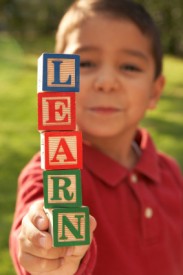
According to the National Center for Education Statistics (NCES), the number of school-age English Language Learners (ELLs) more than doubled between the years 1980 and 2009, rising from 4.7 million to 11.2 million. ELLs currently represent one in nine students ages 5 - 17 in US classrooms, with the majority found in the primary grades.
In a recent webinar, Dr. Virginia Mann, Professor of Cognitive Science at UC Irvine in Southern California, confronted the barriers that ELLs face, and outlined the pathway to success for these students. In order to develop into fluent readers, she explained, ELLs rely on a couple of basics:
- Vocabulary and early language skills
- Phonemic awareness
The good news is that building these skills in a learner’s first language can help build skills in English, as phonemic awareness generalizes across languages and it’s a short hop to understand new English words that sound similar in both languages. The bad news is that many ELLs also grow up in poverty and research shows that young children living in poverty often do not get enough early language experience and exposure to develop strong early language skills.
Because early language skills are so critical for ELLs, if parents take the time to "become teachers" for their children and immerse their children in language by having conversations with them and working with them on listening and speaking activities, learners can make significant gains.
Students whose first language uses an alphabet system have some advantages over those whose first language use an orthographic system, but the bottom line is that when students engage frequently in language-oriented activities and build oral skills, vocabulary, and phonemic understanding in any language, they are on the pathway to successful English language learning.
Mann is quick to note that while parent involvement is crucial, one-shot programs are not sufficient. Parents of ELLs need coaching and support, not just instruction. Dr. Mann references numerous studies and gives examples of the enduring programs that she has created and implemented to support parents in helping their children succeed.
To learn more about why early immersion in any language is so crucial to future academic success, view Dr. Mann's webinar here.

